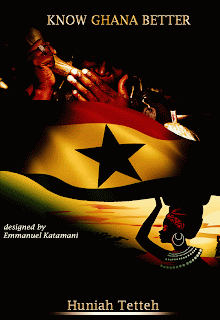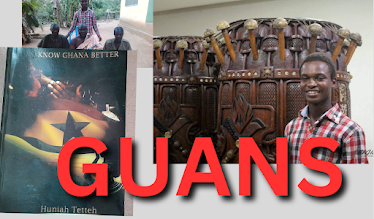THE GHANA-TOGO MOUNTAIN LANGUAGES SPOKEN IN GHANA
The Ghana-Togo Mountain languages are small languages which are somewhat related to each other and they are spoken within the Volta and Oti Regions of Ghana. They have linguistic affinities with each other and some of them believe to be speaking a variant of Ewe or even believe that they are Ewes and such include the people of Logba (Akpanawo), Nyagbo (Batugbu), Tafi (Bagbo) and Avatime (Kedonee). These four language groups spoken in the Volta Region are related a lot to each other and they are the Volta-GTM languages also referred to by some linguists as the Na-GTM languages.
The Logba language is called Ikpana or Akpana by its
speakers and the people of Logba are called Akpanawo. Logba is an exodem. An
exodem simply means it is not the way the people would refer to themselves. The
people of Logba occupy about eight small communities within the Volta Region
namely Alakpeti, Tota, Klikpo, Adzakoe, Aya, Adziveme, Ogome and Wuinta.
Nyagbo and Tafi call their language “Gbɔ” so the
Nyagbo people are called Batugbu and their language Tutrugbu whereas the people
of Tafi speak the “Pegbɔ” language. The people of Avatime also call their
language Siyase. Nyagbo, Tafi and Avatime speak closely related languages
whereas Logba is distantly related. Oral history further indicates the people
of Santrokofi lived with the Tafi-Nyagbo people before migrating to their
present settlement. The Nyagbo-Tafi-Avatime people all trace their routes from
areas within present day Central and Western Regions.
The Akposso, Bowire, Santrokofi (Sele or Sɛlɛ), Akpafu
are inclined as Guans and strongly ascert that they are Guans. They are also
members of the Guan Congress of Ghana but then the languages they speak are
very different from the Guan languages which are originally from Larteh and
Efutu land. They are found in the Oti Region of Ghana. This group of GTM
languages are also called Oti-GTM languages. Some linguists also call the
Oti-GTM languages as Ka-GTM languages.
The GTM languages are all related to each other
however, Nyagbo and Tafi could almost be seen as the same language. Avatime is
a bit different from Nyagbo and Tafi with Logba being very unique among the
Volta-GTM languages. The people of Santrokofi or Sanko for short also speak the
Sele language and they originally migrated from Tafi hence the linguistic
affinity with Nyagbo and Tafi clearly exists. Sanko is also related to
Akpafu-Lolobi, Bowire and Ikposso.
Gidere spoken by the Adeles is the only GTM language
spoken far north of the Oti Region and it is surrounded by Guan languages to
the North, East and West and Gur languages to the south thus Gidere is quite
divergent from the original GTM substratum. Adeles are more inclined to Guan
culture due to the influence of the Guans of Krachi, Atsode, Ntsumburun, Nawuri,
Alijo, Anyanga and Gonja.
Furthermore, we shall separate the numerical
comparisons for the two families of languages. Pegbo spoken by the people of
Tafi have two set of numerical systems: the counting numbers and the moodic
numbers. So then we would list out the numbers for the Volta-GTM languages.
“Moodic numbers” as used below for the Pegbor language
refers to a way of counting in the Pegbor language that is very unique to
Pegbor but then, the simplest way to clarify this system is to assume the “moodic”
way of counting in this sense “single, double, triple, quadripple etc.”
|
PEGBO |
|
|||
|
COUNTING |
MOODIC |
TUTRUGBU |
SIYA |
IKPANA |
|
Oli |
Terekpo |
Oli |
Ɔlɛ |
Ikpɛ |
|
Ꜫpa |
Tiaba |
Ꜫpa |
Ɔva |
Inyɔ |
|
Ꜫta |
Tiata |
Ꜫta |
Ɔta |
Ita |
|
Ꜫlɛ |
Tialɛ |
Ꜫlɛ |
One |
Ina |
|
Tieti |
Tieti |
Otramɛ |
Otsu |
Inu |
|
Xolo |
Tiexolo |
Oxolomi |
Oglo |
Igolo |
|
Gene |
Tiegene |
Ogenemi |
Ogloele |
Glaŋkpɛ |
|
Tiasuɛ |
Tiasuɛ |
Osuɛmi |
Ogɛtɔva |
Mlamina |
|
Tiʒita |
Tiʒita |
Tiʒita |
Ogɛtɔle |
Kɔkɔadu |
|
Kɛfɔ |
Kɛfɔ |
Kɛfɔ |
Liɔfo |
Udu |
|
IKPOSSO |
TUWULI |
SIWU |
SELE |
GIDERE |
|
Idibo |
Fɔwã |
Iwɛ |
Owĩi |
Ake |
|
Ꜫfua |
Fenvia |
Inyɔ |
Ɔnyɔ |
Ꜫnyɔ |
|
Ꜫla |
Felalɛ |
Itɛ |
Otiɛ |
Asie |
|
Ꜫna |
Fena |
Ina |
Ɔna |
Ana |
|
Ꜫtu |
Felo |
Iru |
Ɔnũu |
Ton |
|
Ꜫwuru |
Fevu |
Ikuɔ |
Okuɔ |
Kuɔro |
|
Ꜫwurude |
Fevukɔnɔ |
Ikojɛ |
Okuɛsi |
Kwaranke |
|
Ꜫlɛ |
Fɛlɛ |
Frafana |
Ɔnii |
Niɛ |
|
Ꜫlɛde |
Fɛwɛle |
Kaiwe |
Ɔlãsi |
Yɛrike |
|
Ijo |
Fewua |
Yiweo |
Lefosi |
Fuo |







Comments
Post a Comment
Thank you! Gladly appreciate your feedback. You can also reach out personally via whatsapp or follow me on youtube/facebook Huniah Tetteh.